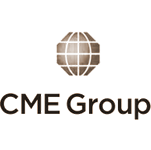They don't appear on Forbes lists. They don't record videos on YouTube. They don't care about proving anything to anyone. But they make decisions with surgical precision. They move fortunes with absolute discretion. And, every year, they increase their wealth — often without being noticed.
In this article, we'll reveal how silent billionaires think and invest.
You'll understand:
• Why they rarely follow popular strategies.
• Which assets they prefer — and why.
• How they view risk, time and return.
• And what you can invest in your own wealth.
In this article, we'll reveal how silent billionaires think and invest.
You'll understand:
• Why they rarely follow popular strategies.
• Which assets they prefer — and why.
• How they view risk, time and return.
• And what you can invest in your own wealth.
🎯 Who Are the Silent Billionaires?

They are entrepreneurs, investors and heirs who:
• Have built (or inherited) large fortunes, but do not live for show.
• Value freedom, discretion and strategic independence.
• Invest based on conviction, analysis and the long term — not on headlines or fads.
Many do not even use social media.
But they are behind private funds, decisive startups, offshore structures, global REITs, strong currencies and alternative assets that most do not even understand.
🔒 How They See Money
Silent billionaires don't think about "making more". They think about preserving, multiplying and protecting.They know that:
• The next crisis will come — and they prepare in advance.
• Extraordinary gains can be useless without asset protection.
• Most investors lose money due to anxiety, vanity or greed.
• Real freedom comes from structure, not euphoria.
📊 Where Do They Invest?
1. Structured Offshore Funds: They diversify across multiple jurisdictions with robust structures — such as trusts, holding companies and private foundations.
Objective: tax efficiency, legal protection and family continuity.2. International REITs and Income-Generating Assets: They seek passive income generation in stable markets, such as the US, Switzerland, Singapore or Australia.
Objective: constant income, without depending on speculative performance.3. Private Equity and Strategic Startups: They don't wait for “opportunities” to fall into their laps. They invest early in transformative businesses, with a 5 to 15-year vision.
Objective: to participate in capital multiplication cycles with direct influence.4. Sovereign Credit Bonds and Hard Currencies: Part of the capital goes to institutional security in currencies such as CHF, USD or SGD.
Objective: protect against currency devaluation, inflation and local instability.5. Art, Wines, Diamonds and Tangible Items with Global Value: They build alternative portfolios that combine emotional value and historical appreciation.
Objective: aesthetic, symbolic and patrimonial diversification.
💼 How Do They Structure Their Investments?
🔹 With Tax Intelligence
They avoid excessive local tax exposure. They use international structuring for efficiency and protection.
🔹 With Governance
They rely on Family Offices or dedicated consultants to keep everything coordinated and professional.
🔹 With a Focus on Legacy
They don't just seek ROI. They seek to transmit values, knowledge and freedom to their heirs.
🧠 What Can You Learn from Them?
• True wealth doesn't seek a stage — it seeks longevity.
• The secret is not in the trendy asset, but in the strategy behind it.
• Discretion is power.
• Structure is freedom.
• Clarity is more valuable than any isolated profitability.
📌 Conclusion
Silent billionaires don't talk much — but their results speak for themselves. If you are in a moment of growth, diversification or internationalization, be inspired by these minds who prefer freedom to fame.And remember: those who manage their wealth wisely don't need to show off. They need to be well advised.
Do you want to invest like the big names that no one sees — but everyone respects?
👉 Click here and learn about our Consulting for Qualified Investors
❓FAQ — Frequently Asked Questions
Yes. Many of these investors’ principles are applicable to investors with a net worth of US$1 million or more, with the help of a tailored consultancy.
It’s not mandatory, but it’s highly recommended for those seeking international protection, succession planning, and tax-efficient diversification.
It all starts with a strategic assessment. A good structure precedes good decisions. That’s what sets them apart from the rest.
























